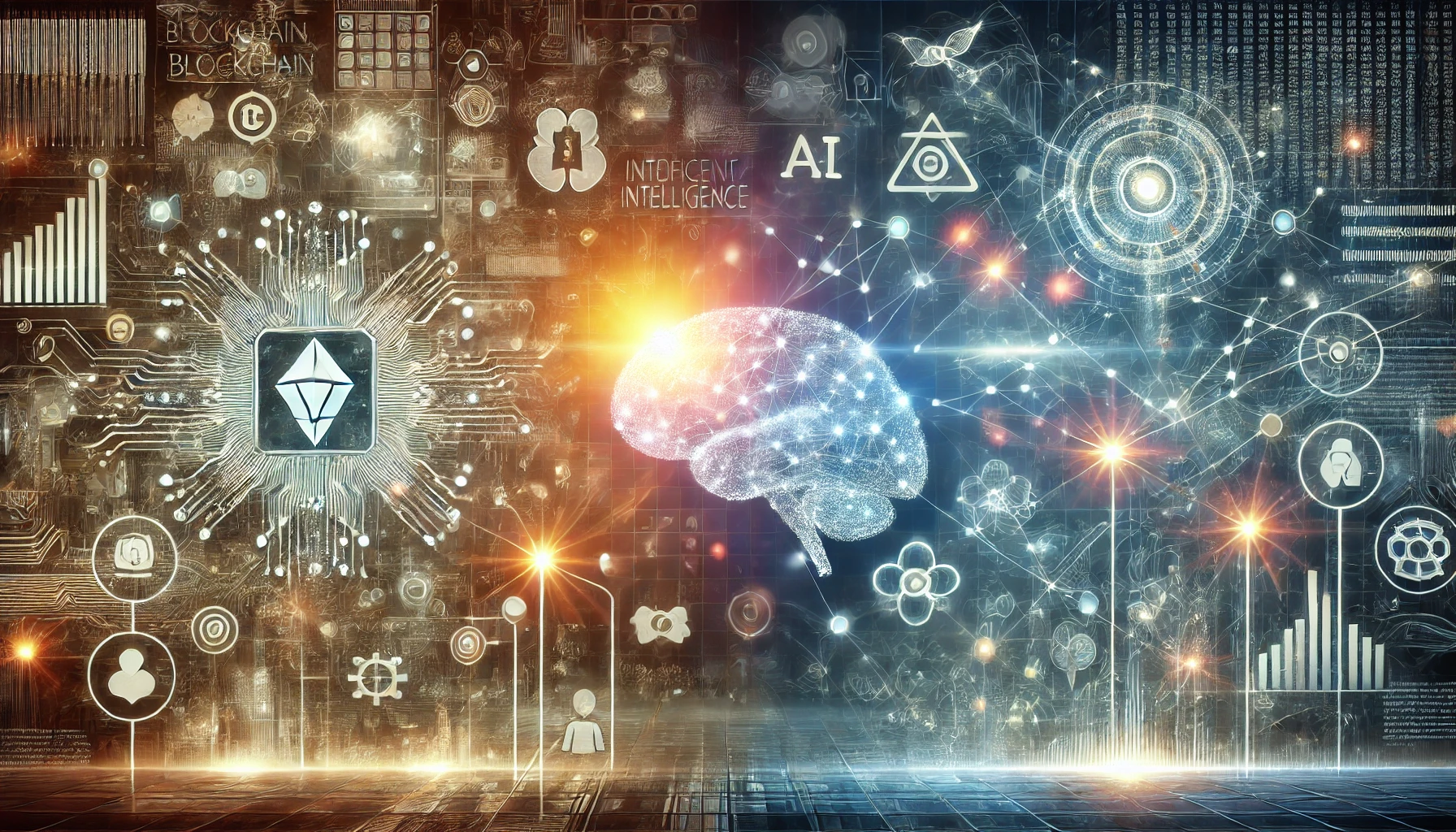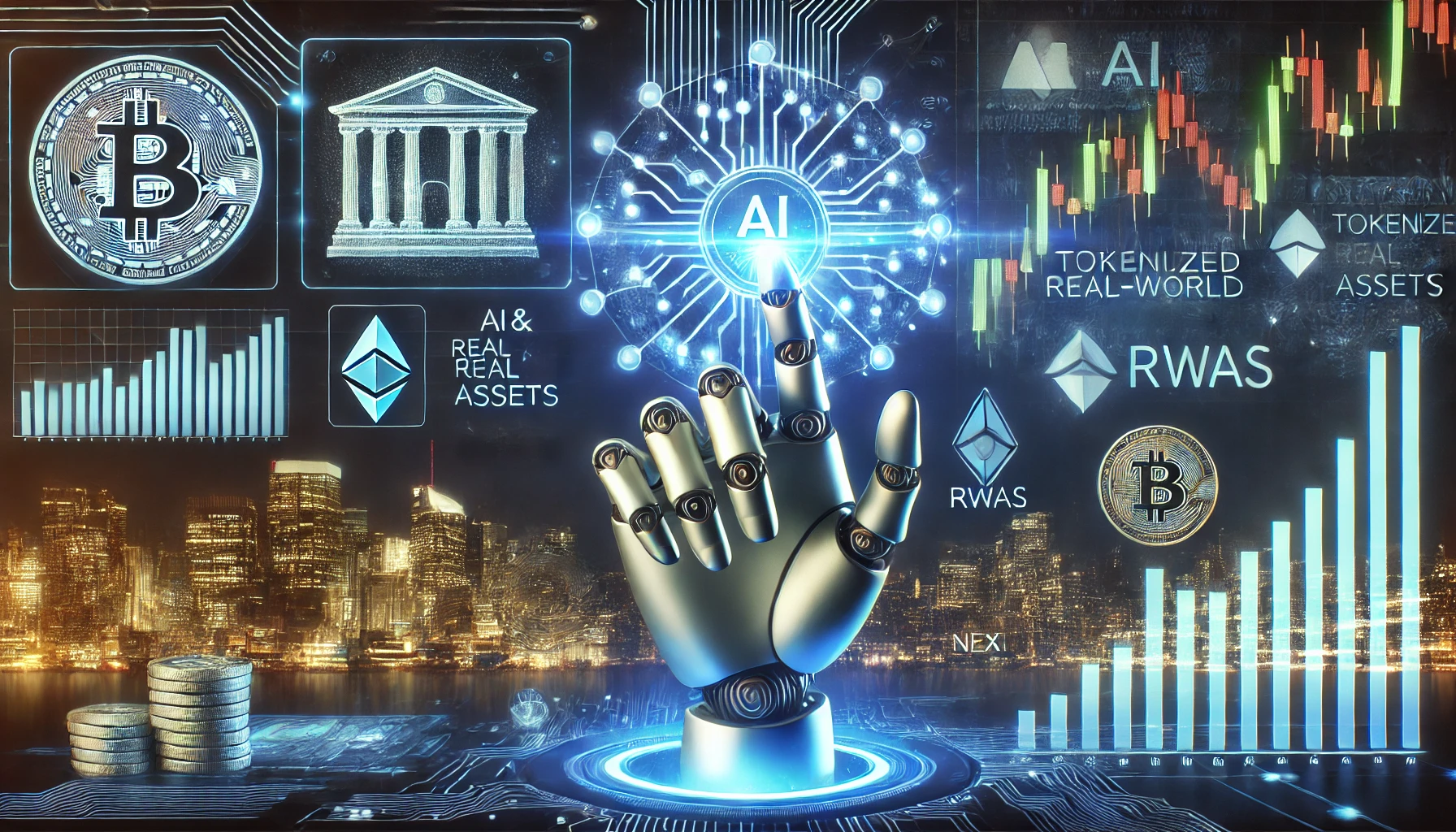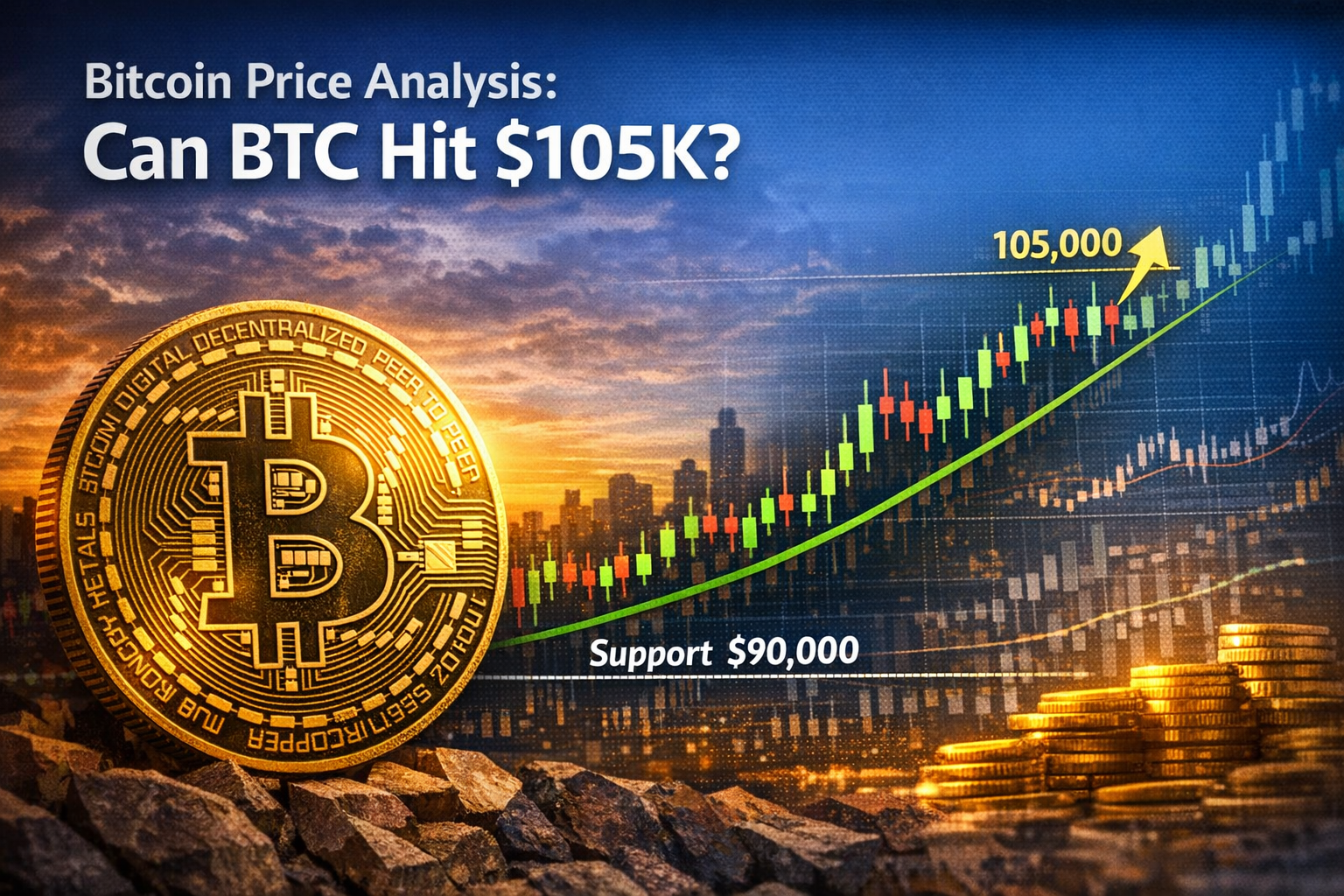The integration of blockchain technology and artificial intelligence (AI) is a groundbreaking fusion that promises to reshape industries, enhance decision-making, and solve critical global challenges. This article critically reviews the combined applications of these technologies and the challenges faced in their adoption across sectors.
Blockchain and AI: A Synergistic Relationship
Blockchain, a decentralized ledger technology, ensures transparency, security, and immutability, while AI enables intelligent data analysis and decision-making. When combined, they complement each other, addressing limitations and enhancing capabilities in the following ways:
- Enhanced Data Security and Integrity
AI relies on large datasets, making data integrity crucial. Blockchain ensures that data used for AI training and decision-making remains tamper-proof and verifiable. - Decentralized AI Models
Traditional AI systems are centralized, raising concerns about data privacy and control. Blockchain enables decentralized AI, where models can be distributed across networks, ensuring trust and reducing single points of failure. - Automated Smart Contracts
AI can enhance the functionality of blockchain-based smart contracts by introducing adaptive and predictive capabilities. For instance, contracts in supply chains can adjust terms automatically based on real-time data like weather conditions or transportation delays.
Applications Across Sectors
- Healthcare
Blockchain ensures secure patient data sharing, while AI analyzes medical records to provide accurate diagnoses and treatment plans. Combined, they can power decentralized health systems where patient data remains private and AI delivers personalized care. - Finance
In the financial sector, blockchain enhances transaction transparency and reduces fraud, while AI optimizes trading strategies and detects anomalies. Together, they create robust systems for risk management and predictive financial modeling. - Supply Chain Management
Blockchain ensures traceability of goods, and AI optimizes supply chain operations. For instance, AI can predict demand, while blockchain verifies the authenticity of products, ensuring sustainable and ethical sourcing. - Energy Sector
Blockchain supports peer-to-peer energy trading systems, while AI predicts energy demand and supply. Together, they enable efficient energy distribution and reduce reliance on centralized grids. - Education and Research
Blockchain ensures academic integrity by validating credentials and research contributions. AI, on the other hand, personalizes learning experiences and accelerates data analysis in research, creating a dynamic ecosystem for innovation.
Challenges in Integration
Despite the promising potential of combining blockchain and AI, challenges remain:
- Scalability
Blockchain networks often face scalability issues, which can hinder the real-time processing capabilities needed for AI applications. - Interoperability
Different blockchain networks and AI frameworks lack standardized protocols, making integration complex. - Energy Consumption
Both blockchain and AI are resource-intensive, raising concerns about their environmental impact. Optimizing energy use is essential for sustainable adoption. - Data Privacy vs. Transparency
Blockchain’s transparency conflicts with the need for data privacy in certain AI applications, requiring innovative solutions to balance the two. - Ethical Concerns
The use of AI and blockchain raises ethical questions around surveillance, data ownership, and decision-making autonomy, necessitating robust governance frameworks.
Future Prospects
The integration of blockchain and AI is still in its early stages, but its potential is immense. Key areas of future exploration include:
- Federated Learning with Blockchain: Using blockchain to support decentralized AI model training without sharing raw data, ensuring privacy and collaboration.
- AI-Enhanced Smart Contracts: Developing more sophisticated contracts capable of handling complex scenarios using AI.
- Sustainable Technologies: Addressing the energy challenges by adopting green blockchain solutions and optimizing AI algorithms for efficiency.
The intersection of blockchain and AI holds the promise of revolutionizing industries by addressing inefficiencies, enhancing security, and enabling innovative applications. However, realizing this potential requires overcoming significant challenges, including scalability, interoperability, and ethical concerns. By fostering collaboration between technology developers, regulators, and industry leaders, blockchain and AI can truly transform the way we work, interact, and solve global challenges.
This critical review highlights the importance of balancing innovation with responsibility to unlock the full potential of these groundbreaking technologies.




